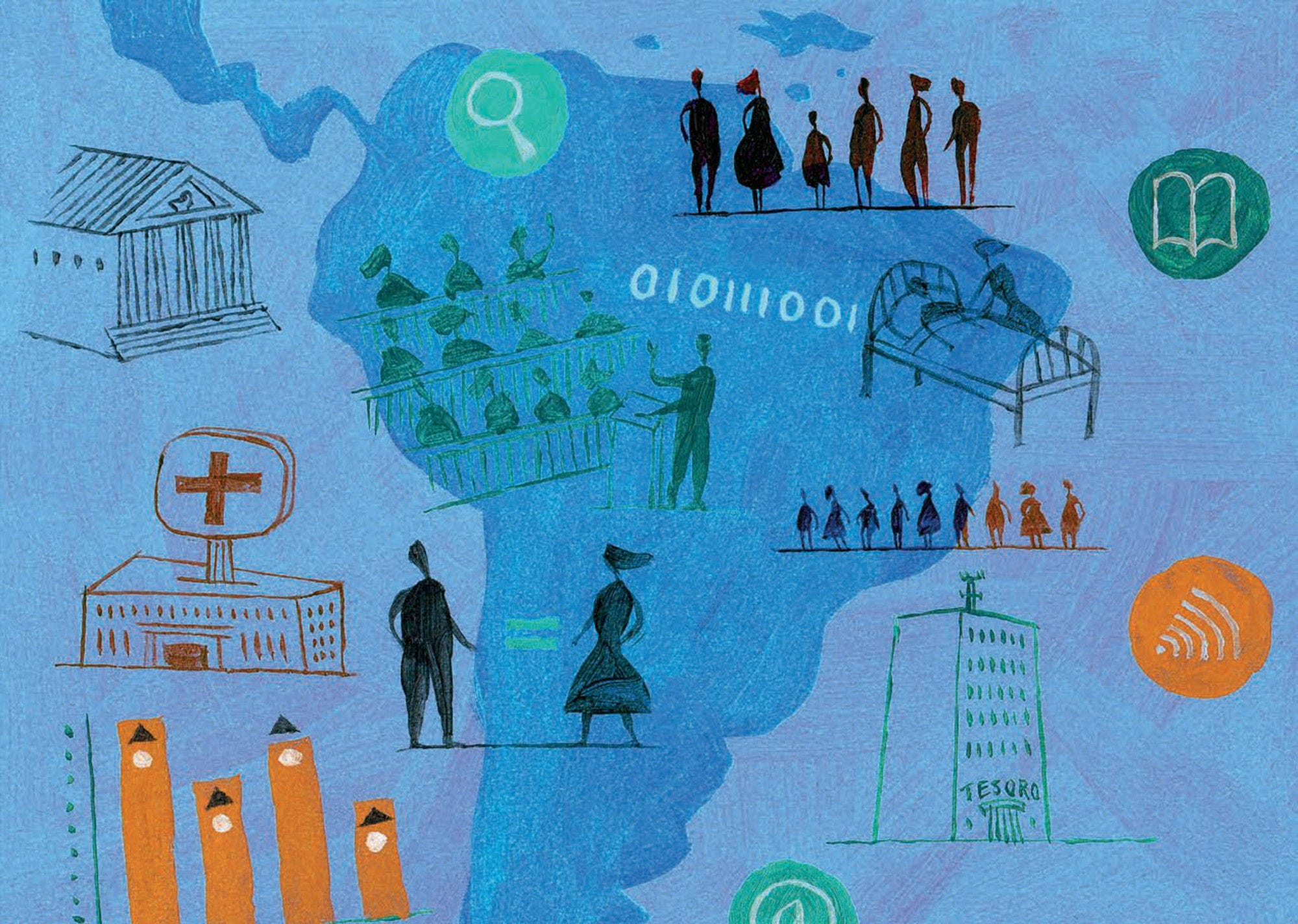Following strong economic growth in the 2000s, many countries in the Latin America and the Caribbean (LAC) region have experienced a slowdown in recent years. Economic growth has taken a hit from declining commodity prices, low productivity and persistently high inequality – affecting both incomes and opportunities. A wave of corruption scandals has further undermined trust in government and in the private sector. The threat of popular disenchantment and diminishing trust in public institutions is now more real than ever. As of 2018, only 34 percent of the population in the LAC region reported trusting their government, a level four percent lower than in 2007.
This publication analyses the workings of governments in the LAC region and the public governance challenges they face. Strengthening institutional quality is a necessary condition to increase trust in government and curtail citizens’ discontent. Apart from being technically sound, public governance reforms require deep understanding of both the political economy and citizens´ expectations. Indeed, the incomplete implementation of past reforms, combined with an ineffective management of their political economy, remains an important challenge for some countries in the region. To address this gap, it is essential to rebuild capacity and overcome the resistance of powerful interests, which still have high stakes in the preservation of the status quo, including those who benefit from opacity and low accountability.
This third edition of Government at a Glance: Latin America and the Caribbean 2020 includes the most comprehensive set of indicators for the LAC region on public governance, covering finances and employment, different government processes, as well as core government results. Indicators related to ensuring public sector integrity and social accountability in decision-making have also been included for the first time. In this respect, the data presented allows readers to gauge both the design of public governance reforms, and their effective and fair implementation through sound management.
Overall, the evidence laid out in this publication underlines how the region has made noticeable progress in several areas, including a greater commitment to engage stakeholders in the development of regulations, promoting transparency in the budgetary process, and enhancing access to government data. Nevertheless, many LAC countries still struggle to implement public policies effectively. For example, while on average the region’s laws related to political financing and the right to access information are stronger than in OECD countries, their enactment and enforcement often lag behind.
Better policy implementation in key areas is therefore needed. This includes ensuring stronger policy co-ordination and strategic planning, prevention of conflicts of interest, general regulatory simplification, improved consultation with citizens and a streamlining of public procurement systems. This would help improve the delivery of public services and ultimately contribute to regaining citizens’ trust in governments.
In addition, one of the most pressing challenges facing LAC countries today is improving the professionalisation of their civil services. Over the last decade, merit-based recruitment increased and around 80 percent of LAC countries introduced training programmes for public service workforces. However, more needs to be done to upgrade the skills of public officials and to avoid the politicisation of public employment. A large portion of the public service workforce is still not subject to merit-based hiring procedures. Moreover, executive leadership training and digital training have been introduced in only half of the region’s countries.
In order to sustain inclusive growth, Latin American and Caribbean countries need to continue implementing public sector reforms that promote outcomes such as increased trust in government and fairness for all. This report, which is the result of a fruitful collaboration between the OECD and the IDB, aims to contribute to this endeavour. It provides rigorous, evidence-based research and indicators, and it brings together the OECD’s methodology and expertise as an international platform for policy dialogue with the IDB’s knowledge and understanding of the region. We very much hope that it provides a deeper understanding of the state of public governance in the LAC region, and that it can help governments develop more successful public sector reforms to promote greater transparency, integrity and effectiveness in public governance.

OECD Secretary-General Angel Gurría

IDB President Luis Alberto Moreno
